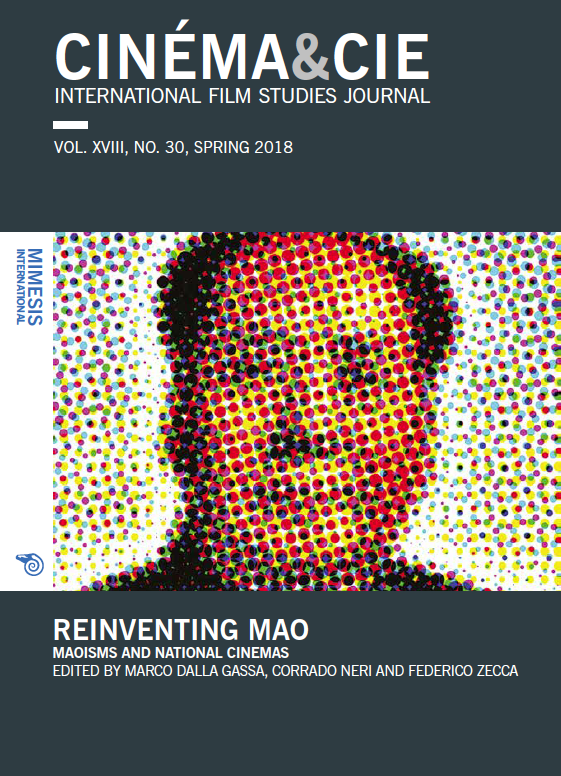Struggles on Two Indivisible Fronts Godard, Dziga Vertov Group and the Ethical Predicaments of Post-1968 French Maoism
Abstract
With reference to the historical trajectory of modern French cinema, the Mao- leaning period (1967-1972) of Jean-Luc Godard under the collective spell of the Groupe Dziga Vertov (Dziga Vertov group, or DVG in short) was often a controversial and divisive subject among his critics and commentators following the political watershed of French May ‘68. This essay will take two of the most provocative and representative features made during the DVG period, Vent d’est (Wind from the East, 1969) and Tout va bien (All’s Well, 1972), as the major point of departure to critically re-examine how Godard and his major lm collaborator, Jean-Pierre Gorin, endeavored to revolutionize the bourgeois traditions of Western narrative cinema with the radical introduction of Maoist discourses and dialectics shortly after the wake of May 1968. Also, by re- orienting some lingering epistemological and ethical questions of post-68 French Maoism back into the predominant symbolic fabric of contemporary neoliberal consensus, the aim of this paper is to re-examine the profound dialectical nexus between Western political cinema and the legacies of global 1968 to illuminate the current predicaments of leftist utopianism in our midst.






